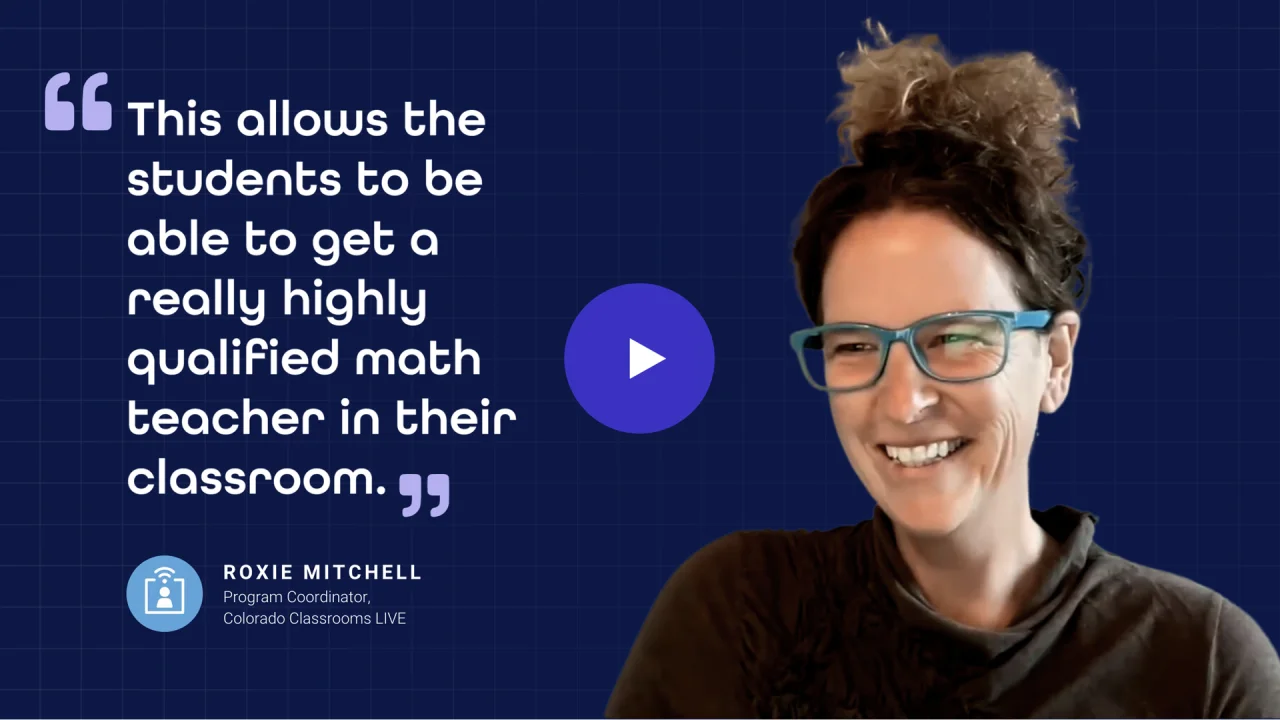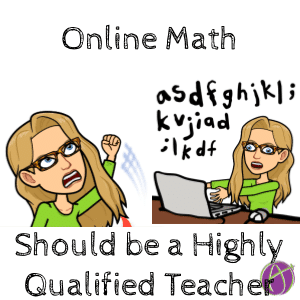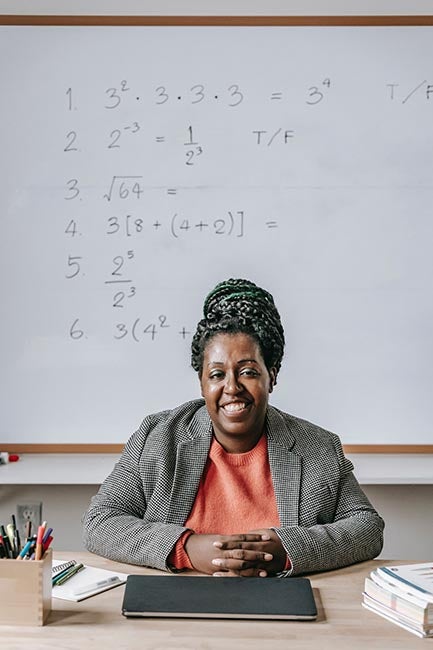How qualified math teachers use real-world examples to make math meaningful
All Regarding Professional Math Teachers: Their Duty in Fostering Student Growth and Accomplishment in Mathematics Education
Qualified mathematics teachers are important in shaping students' understanding and admiration of maths. Their deep expertise and reliable teaching strategies can substantially influence student results. These educators not just give mathematical abilities however additionally cultivate an inclusive atmosphere that satisfies varied learning requirements. As they take on cutting-edge methods, the question arises: just how do these strategies particularly improve pupil interaction and achievement in mathematics?
The Importance of Competent Mathematics Educators in Education And Learning
Numerous elements contribute to trainee success in mathematics, the existence of certified mathematics instructors stands out as an important aspect in promoting reliable learning atmospheres. Study consistently indicates that trainees taught by instructors with strong mathematical backgrounds tend to show higher levels of understanding and success. Qualified mathematics educators not just possess a deep understanding of mathematical concepts but also the instructional abilities essential to share complicated concepts in accessible methods. They can recognize trainees' individual demands and adjust their teaching strategies accordingly, promoting inclusivity and engagement. Additionally, their proficiency allows them to create a positive class environment that encourages risk-taking and durability in analytical. This supportive atmosphere promotes a growth way of thinking among students, improving their self-confidence and motivation in maths. Generally, certified math educators play a vital role in forming students' attitudes towards mathematics, eventually affecting their future opportunities and scholastic trajectories.
Key Qualities of Efficient Mathematics Educators
Efficient math educators have several crucial qualities that enhance their mentor performance. These include deep subject expertise, solid interaction abilities, and flexible mentor methods that satisfy varied knowing demands. Recognizing and cultivating these attributes can considerably influence pupil understanding and engagement in mathematics.
Deep Subject Expertise
While a strong instructional approach is vital, deep subject expertise stays a keystone of efficient math educators. Such knowledge enables teachers to understand mathematical concepts thoroughly and to anticipate trainee misconceptions. Educators with a solid grasp of math not just supply material with self-confidence yet also connect numerous subjects, fostering a richer discovering atmosphere. They are outfitted to use varied teaching techniques that provide to various discovering designs, making complex concepts more obtainable. Deep subject expertise equips teachers to involve in significant conversations with pupils, urging important reasoning and analytic skills. Ultimately, the depth of comprehending that math educators have considerably influences students' academic growth and accomplishment in maths, laying a strong foundation for future learning.

Solid Interaction Abilities
Deep subject understanding alone is inadequate for fostering an efficient understanding environment in maths; strong communication abilities are just as important for reliable math educators. These abilities allow teachers to communicate complex concepts in accessible methods, making certain that trainees grasp foundational ideas. Effective interaction entails not just clarity yet likewise the capacity to proactively listen, urging student engagement and attending to misconceptions. By promoting an open discussion, teachers produce a helpful class environment where pupils really feel comfy asking concerns and revealing their ideas. Furthermore, solid communicators can adapt their language and explanations to match diverse understanding styles, improving trainee involvement and understanding. Eventually, reliable communication bridges the void between an instructor's understanding and a student's understanding, greatly affecting scholastic success in mathematics.
Flexible Training Strategies
A range of flexible teaching techniques are important for reliable mathematics educators aiming to satisfy the varied demands of their pupils. These techniques make it possible for educators to tailor their instruction based upon specific understanding styles, capabilities, and rate of interests. qualified math teachers. Methods such as distinguished guideline, where instructors customize item, web content, or procedure, help address varying effectiveness levels. In addition, integrating innovation and interactive tools can improve engagement and facilitate personalized knowing experiences. Formative evaluations permit educators to keep an eye on development and adjust mentor methods accordingly. Joint group work promotes peer discovering, cultivating an encouraging atmosphere. By employing these adaptive approaches, math educators can produce comprehensive class that motivate all students to thrive and achieve their scholastic objectives, inevitably fostering a love for maths
Cutting-edge Training Methods Employed by Math Teachers
As educators look for to engage pupils more efficiently, ingenious mentor techniques have actually emerged as a centerpiece in math classrooms. These approaches intend to enhance understanding and retention of mathematical concepts. One popular method is the use of innovation, such as interactive software application and online simulations, which permits trainees to envision intricate problems and obtain prompt feedback.Additionally, project-based discovering motivates collaboration and real-world application of math principles, cultivating crucial believing abilities. Gamification, where math principles are incorporated into game-like atmospheres, has additionally acquired popularity, making discovering extra satisfying and inspiring for students.Moreover, differentiated direction check my site tailors lessons to accommodate varying ability levels, ensuring that all pupils can advance at their very own speed. By employing these innovative approaches, math educators create dynamic learning experiences, eventually advertising greater student development and achievement in mathematics.
Producing Inclusive Knowing Environments
Producing inclusive understanding environments in maths education involves implementing varied discovering strategies and promoting collective team tasks. These methods provide to the diverse demands of trainees, making sure that everybody has the chance to engage and succeed. By prioritizing inclusivity, math instructors can grow a classroom ambience that sustains all learners.
Diverse Discovering Methods
While numerous educators undertaking to foster comprehensive discovering atmospheres, applying diverse understanding techniques is important for properly getting to all students. These methods encompass an array of mentor methods customized to fit varying learning styles, backgrounds, and abilities. As an example, incorporating visual help, manipulatives, and technology can involve students who may fight with typical direction. Additionally, set apart direction allows instructors to change assessments and projects, making sure that every pupil can access the educational program at their own level. Culturally receptive rearing likewise plays a significant function in recognizing and valuing the varied experiences of pupils, thereby enhancing their link to the product. By making use of these varied understanding techniques, qualified math instructors can create a helpful ambience where all trainees are empowered to be successful in maths.
Collaborative Team Activities

The Impact of Qualified Math Educators on Trainee Achievement
The existence of qualified math instructors substantially influences pupil achievement, as efficient instruction can link spaces in understanding and promote a favorable learning setting. Study suggests that pupils instructed by seasoned educators show greater degrees of efficiency in mathematical principles contrasted to their peers. Qualified mathematics teachers have a deep understanding of mathematical material, allowing them to existing material in diverse manner ins which satisfy different finding out designs. This versatility not only enhances understanding however likewise enhances pupil confidence in their abilities.Moreover, qualified teachers commonly use formative evaluations to monitor pupil progress, Bonuses enabling prompt treatments when required. Their capability to produce interesting lessons motivates pupil participation and advertises a development mindset. As an outcome, the impact of qualified math instructors extends beyond plain academic performance; it cultivates a feeling of inquisitiveness and durability in pupils, ultimately bring about boosted results in mathematics and a stronger foundation for future discovering.
Methods for Involving Pupils in Mathematics
Engaging trainees in math requires a diverse strategy that integrates varied methods to capture their rate of interest and boost understanding. One reliable method is using real-world applications, allowing students to see the relevance of mathematical ideas in everyday life. Incorporating technology, such as interactive software program and on the internet sources, can likewise promote involvement by giving vibrant learning experiences.Group work motivates partnership, making it possible for students to gain from each other and create problem-solving skills in a supportive environment. Additionally, incorporating video games and hands-on activities can make learning even more accessible.differentiated and enjoyable instruction accommodates various discovering styles, making certain that all pupils can connect with the product. Ultimately, giving prompt comments assists students recognize their progress and locations for improvement, promoting a growth way of thinking. By using these techniques, educators can create an appealing mathematics class that advertises trainee development and success.
The Role of Specialist Advancement in Enhancing Math Training Abilities
While numerous instructors acknowledge the value of effective mentor methods, expert development plays a necessary role in improving mathematics training skills (qualified math teachers). Continual training opportunities permit teachers to stay existing with instructional improvements, mathematical content, and technological devices. Seminars and workshops supply discussion forums for educators to collaborate, share ideal practices, and go over obstacles they experience in the classroom.Furthermore, specialist advancement fosters a growth frame of mind amongst site web instructors, encouraging them to show on their techniques and adjust their techniques based on pupil needs. This recurring learning process not only enhances educators' mathematical understanding but likewise outfits them with cutting-edge instructional techniques that can cause boosted trainee interaction and achievement.Ultimately, an organized specialist advancement program can substantially influence the quality of math education and learning, ensuring that teachers are well-prepared to influence and direct their pupils toward success in mathematics
Regularly Asked Concerns
What Certifications Are Required to Become a Mathematics Teacher?
To become a mathematics instructor, individuals commonly need a bachelor's degree in mathematics or education, teaching qualification, and a solid understanding of mathematical ideas. Extra certifications might consist of specialized training in rearing and class administration abilities.

How Do Math Teachers Assess Pupil Development in the Classroom?
Math educators examine student progress via different techniques, including projects, tests, and quizzes (qualified math teachers). They also utilize observational assessments and trainee engagement to gauge understanding, changing instruction based on private and team efficiency to enhance learning results
What Challenges Do Mathematics Educators Commonly Face?
Math instructors commonly deal with obstacles such as varying trainee skill levels, minimal sources, educational program restrictions, and the need to engage trainees properly. In addition, they usually experience stress to improve standard test scores and manage class behavior.
How Can Moms And Dads Support Their Youngster's Math Education?
Moms and dads can sustain their kid's mathematics education by offering a helpful understanding environment, participating in math-related activities, urging a favorable mindset towards obstacles, and preserving open interaction with teachers to keep an eye on progress and address concerns.
What Resources Are Available for Mathematics Teachers to Boost Their Skills?
Different resources are offered for math teachers, including online courses, specialist development workshops, peer partnership teams, instructional websites, and training journals. These tools improve educational techniques, grow subject knowledge, and eventually improve pupil understanding end results in maths. Certified math teachers are vital in forming students' understanding and gratitude of maths. Lots of factors add to pupil success in maths, the existence of qualified math instructors stands out as an essential element in cultivating effective knowing atmospheres. Furthermore, certified math educators facilitate these communications by strategically grouping trainees, making sure that each team consists of a mix of skill levels and backgrounds. The presence of qualified math instructors considerably influences pupil success, as efficient guideline can link spaces in understanding and cultivate a favorable learning setting. Math teachers typically face obstacles such as varying trainee skill levels, minimal sources, curriculum constraints, and the need to involve students efficiently.